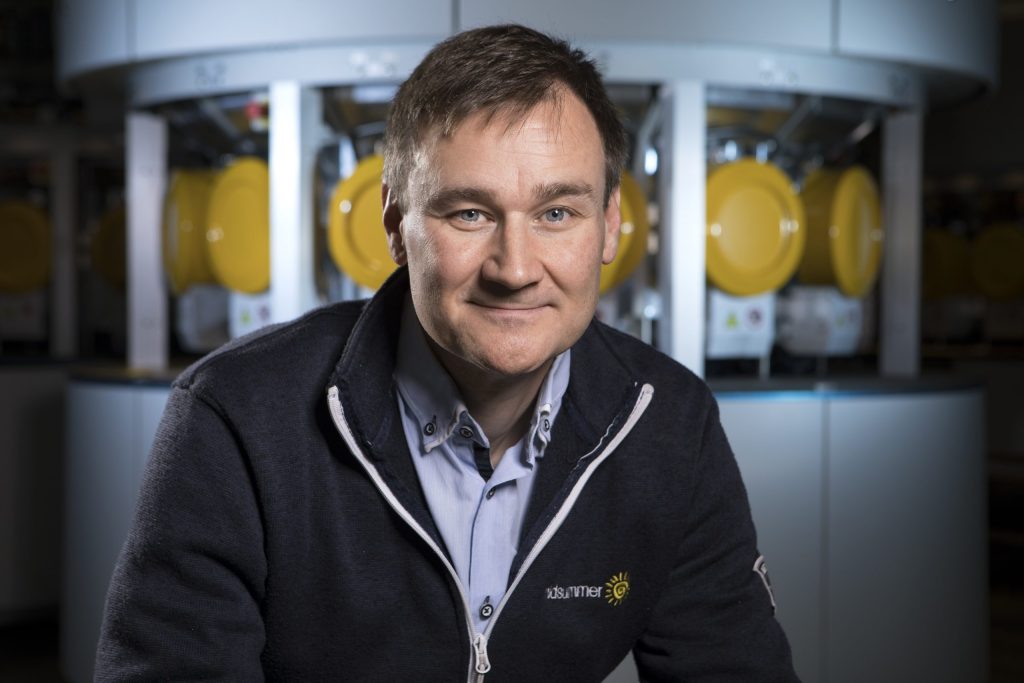- by Sven Lindström, CEO, Midsummer
Industry veteran Sven Lindström, CEO of Swedish solar energy leader Midsummer, has predicted New Year’s energy trends since 2014 – often highly accurately. Again gazing into the crystal ball, this is what he sees as the three strongest trends in renewable energy as we move into 2023:
Exactly a year ago, I predicted volatile and rising electricity prices in 2022 – even before Russia’s invasion of Ukraine – and wind power increasingly moving offshore, among other things. So it is with some confidence I look at 2023 with the following predictions:
1. A boom for solar
Admittedly, it has been predicted before, but with the EU now throwing the kitchen sink and everything in between to rapidly reach energy independence and a fossil-free future the stakes are being ramped up quite considerably. The Recovery and Resilience Fund has a massive €300bn to spend and the REPowerEU program has an ambition to reach 45 percent renewable energy in the EU by 2030 – which is now only seven years away.
Maybe even more importantly, these significantly higher ambitions are being mirrored by nations, regions, municipalities, corporations and private households across all of Europe and the world. As one example of many, Swedish municipalities are now increasingly demanding solar cells on all its public buildings. It is hard to overstate the importance and impact these large and small initiatives will have even in the short term. This will be the year of the solar, and especially rooftop solar!
2. Energy independence
Russia’s war in Ukraine has highlighted the need for continents, unions and nations to achieve energy independence, lest be potential victims of politically induced energy blackmailing (and uncontrollable supply and pricing). This need for energy independence is becoming obvious also for smaller entities like corporations and private households, in the light of astronomical electricity prices and the risk of rolling blackouts.
You become energy independent by producing your own energy. For most smaller entities, solar is the only option. And it is a good option – readily available, trusted and dependable and with ever shortening payback times. For nations and continents, there are also wind and nuclear power options. These might be less politically and publicly acceptable and will take longer to roll out. Again, solar is the best option.
Bear in mind, becoming (at least partially) energy independent is in addition to all other advantages solar energy has, like being green and sustainable.
Another aspect of energy independence is to also become less dependent not only on energy in its pure form but also on foreign power plants, materials and devices, even if they fit in to the renewable mold. So rather European solar panels than Chinese ones etcetera. The EU is moving in that direction and the market also.
3. Increasing focus on life cycle climate footprint
It is not green or sustainable just because it is renewable. Consumers are increasingly looking at the entire life cycle climate footprint of a renewable energy solution. Emitted carbon dioxide per produced kilowatt-hour will become an increasingly important measurement. The private sector especially, eager to become carbon neutral for brand purposes, will look at this as a prime determining factor when choosing its green initiatives.
So players in the renewable energy industry must look at all the impressionable factors of their operations, from sourcing of raw materials to recycling at the end of their products’ lives. Consumers are now smart enough to figure out how green “sustainable” solutions really are – and bold enough to open their wallets only for the greenest.
by Sven Lindström, CEO, Midsummer
Sven Lindström is co-founder and CEO of Midsummer, a Swedish solar energy company that develops and markets equipment for the production of thin film solar cells and manufactures, sells and installs solar roofs. Mr. Lindström has over 20 years of experience from international business and development of high-tech production equipment, including advanced solar energy solutions. See http://www.midsummer.se/en/.

